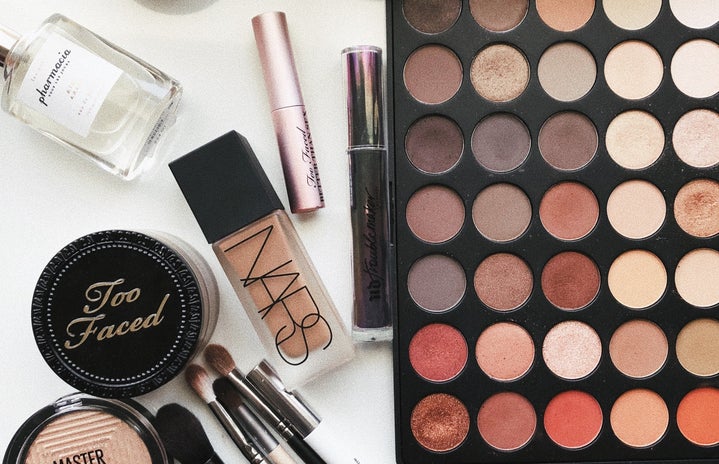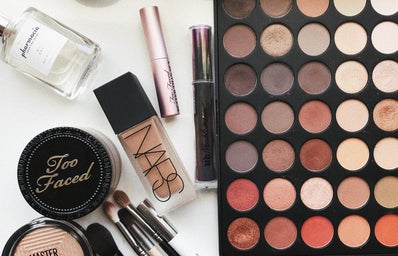If you know anything about makeup, you’ve probably heard of ColourPop. Founded in 2014, this relatively new makeup company is known for its quick, affordable and trendy products – from its shiny, glittery eyeshadows to its dark, matte lipsticks.
In the past six years, ColourPop has boasted nonstop social media popularity; it has been celebrated by various celebrities, influencers, and consumers for its contemporary collaborations (including the highly popular Sailor Moon collection) and attractive colors. However, the company has a darker side, one that warrants investigation.
ColourPop is notorious for its constant product launches. In fact, this year alone, the company has released 34 collections. Considering that most makeup companies typically release a collection per season, this is an insane number. In fact, ColourPop’s founder Laura Nelson boasts about the frequency of these product launches, saying, “It’s all about applying the fast fashion model to beauty.”
ColourPop came from nowhere – it started out as a brand incubated by Seed Beauty and had its first breakthrough on social media because of its five dollar lipsticks. Shrouded in secrecy, Seed Beauty’s mission for ColourPop included being “dedicated to newness at lightning speed, so we imagine, develop, test, and manufacture all under one roof.”
Today, this company vision proves to be true, as ColourPop has shown time and time again that it can go from idea to product in five days (according to the Netflix documentary series Broken). ColourPop’s business model is revolutionary, but it poses issues that have been making people increasingly wary. These problems are also demonstrated in the fast fashion industry.
In recent years, fast fashion has been a growing public issue. Fast fashion is defined as “cheap, trendy clothing that samples ideas from the catwalk or celebrity culture and turns them into garments in high street stores at breakneck speed.”
This is an industrial trend that sprung up about 20 years ago, as buying clothes was no longer a seasonal or biannual event. Instead, shopping became a hobby, clothes became cheaper as the cost of production went down, and trends accelerated due to the inception of social media and the internet.
The negative effects of fast fashion include the increased pollution of clean water and the escalating stress on the environment. Most importantly, fast fashion clothes are typically constructed cheaply, which allows people to buy and dispose of these super affordable clothes in excess.
The dangerous trend of fast fashion is actually transferring to the beauty realm. People are buying every cheap makeup item that ColourPop releases at an excessive rate, and other companies are taking note. Anastasia Beverly Hills, a makeup company once known for its small and well-curated eyeshadow palettes, has been increasing their releases in the last two years; at one point, they released eight eyeshadow palettes within a span of four months. Other companies, such as Morphe, are also following the footsteps of Colourpop with numerous, massive eyeshadow palette releases.
We are living in the age of mass consumerism inherent to a capitalist society. People are buying more, because they’re being exposed to more makeup hauls and new collections on Instagram and YouTube. Viewers feel inclined to buy more products than they can actually use, and many of them expire and need to be thrown out before they get proper use. This contributes to the large amount of waste we, as a society, already produce.
This is why ColourPop’s business model is dangerous. As companies scramble to emulate its competitive advantage through speedy and affordable releases, there will be a rise in production and subsequently, a rise in purchasing and a rise in waste.
Luckily, there is a counter-movement to fast fashion and fast beauty that is gaining momentum. The term “New Consumerism” is emerging as YouTubers promote wise spending, curated collections and a counter to makeup addiction. Two weeks ago, YouTuber Kelly Gooch created a video on ColourPop’s business model, bringing attention to the problems that arise in a “fast-beauty” world. TikTok users are also starting to use the platform as a way to combat climate change and fast fashion. While Colourpop’s successful business model raises some concerns for the future of our planet, there is a growing optimistic shift in the mindsets of consumers.


